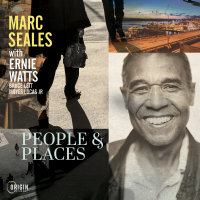Home » Jazz Musicians » Jürgen Friedrich Discography
Reboot
Jürgen Friedrich
Label: Nwog Records
Released: 2015
Duration: 00:60:40
Views: 478
Tracks
Gelog Park Blues; Stir; Invention; For A; Klavierst®єck op.11/1; Bergs; Three for D`reen; Stepping Stones; It?s You Or No One
Personnel
Additional Personnel / Information
RECORDING INFO Engineered by Christian Heck and Hannes Plattmeier Mixed by Christian Heck at Tonart Studio / Cologne Mastered by Mike Fossenkemper at TurtleTone Studio / New York Publishing by Gema (1, 2, 4, 6, 8), Polskie Wydawnictwo Muzycne (3), Universal Edition (5), ECM (7) Artwork by Corinne H?chler at Riografik / Zurich Produced by J®єrgen Friedrich in cooperation with Nils Wogram for nWog Records
Album Description
RELEASE NOTES J®єrgen Friedrich REBOOT // REBOOT ®C A Click Constellation In jazz there are moments when everything just clicks. These moments are seldom, sumptuous and can hardly be expressed in words. The distinguished Cologne-based pianist J®єrgen Friedrich has a new trio with David Helm on bass and Fabian Arends on drums ®C which emerged out of such a click moment. °∞We met in my rehearsal room at former railway premises, just to play a bit and try out new ideas. And then everything clicked,°± explains Friedrich. J®єrgen Friedrich is a pianist and composer who understands his instrument from the inside out. He thinks deeply into this weighty piece of sound furniture, takes away its massiveness and transforms every keystroke into a transparent idea. When he plays, he shows respect for jazz history in his love of the tone. He has been able to put this gift into practice in various larger and smaller groups, first and foremost in his long-term trio with bassist John H®¶bert and drummer Tony Moreno, with whom he has released a series of CDs, or in his quartet with jazz legend Kenny Wheeler. And yet the pianist is yearning for new experiences. What characterizes the music of this symbiotic piano trio are chamber-music intimacy, improvisational risk taking and a strong interest in leaving clich®¶s and conventions behind. Aside from Kenny Wheeler°ѓs °∞Three for D°ѓreen,°± all the pieces work according to rules that cannot so easily be understood. Wheeler, who recently passed away, was not only an important source of inspiration for Friedrich, but Friedrich also recorded his first record with the British jazz master, who said of himself that he swings between melancholy and chaos (Friedrich studied in Cologne with John Taylor, Wheeler°ѓs confidant). In the meantime, Friedrich°ѓs main musical interests have shifted, which, if nothing else, can be seen in the fascinating versions of a piano piece by Arnold Sch?nberg and an invention from Witold Lutoslawski. What is true for these pieces is also true for the rest of the album: by doing without a standard method, the musicians have found a fitting way of playing each piece. In the age of conceptualism, they have consciously refrained from using rigid concepts and simply take the music as it comes. Friedrich outlines the credo of this group as follows: °∞minimal plan, maximal risk.°± This way, a searching, an exploring attitude arises, one which demands great attention from the audience. This attention, in turn, is rewarded with many moments of ah-ha and awe. Friedrich again: °∞We are not an eighty-percent band with a safety net.°± In other words, when you dare a lot, everything can°ѓt work out ®C and yet, one advances, in especially successful moments, into areas than cannot be reached otherwise. They don°ѓt make free jazz in the classical sense, but rather a jazz liberated from expectations, one that opens itself up to pop as it does to contemporary classical music. Virtuosity is not the name of the game, but neither is perfection. The three from Cologne make us an offer, the sounds unfold in the head of the listener and a symbiosis proceeds along with imagination. For all the pieces, different takes were recorded, each of which freed up different ways of reacting and channels of communication according to the impulse. That the music still does not sound arbitrary or without orientation at any point in time ®C this lies upon the fact that the three concentrate passionately upon each individual sound and upon playing together. °∞One has to pay great attention,°± says Friedrich, °∞especially when one has not defined a fixed shape for the performance beforehand.°± Different from music made by other contemporary piano trios, which mostly rely upon the participants sharing in the music proportionally, the music on Reboot can be arranged around the piano with ease. Bass and drums constantly revolve around the sound of the piano, but without being reduced to functional services. It is simply the way it is ®C for every impulse there underlies a conscious creative decision that is only one of uncountable and conceivable decisions made in the same context. The indescribable lightness of sound resulting from this runs from the first to the last tone. The gliding flight gets its impetus from the great amount of trust these three musical free thinkers have in each other; this way, they can take the maximum risk without worrying that they will crash. In fact, the three musicians interact with an empathy that borders on telepathy. Reboot is a fortunate moment for European piano jazz. This CD does not assume the listener has a Jazz GPS; the music is simply there and allows the listener to be in it. It°ѓs as simple as that. Nothing more and nothing less. Let°ѓs just simply call it a click constellation. REVIEWS What matters is how they create a meta-harmonic, pan-rhythmic togetherness, connecting seemingly unconnected pulses into a musical whole. Thus, the pieces border closely with New Music, refuse complaisance and are able to act fluid and challenging at the same time. Despite its tendency toward creative abstraction, Reboot has the power to sound very concrete. Ralf Dombrowski, jazzthing Friedrich continues along the path that a Paul Bley or a Bob Degen explored with the later ECM boss Manfred Eicher on bass. The demand for agogics, also in jazz, becomes blissful reality here: fascinating, sensuous sonorities of the piano tangle and disentangle themselves with the highest tonal sensitivity of the drums and songful warm-sounding bass lines. Thomas Fitterling, Rondo In all balancing acts between the tonal and atonal, Reboot is still ultimately a "jazz album," and it's a very strong one, mind you! Unerringly, it accesses art music of the 20th century successfully, namely an invention of Witold Lutoslawski and Arnold Schoenberg's Piano Pieces, Op 11/1. Stefan Pieper, nrwjazz.net From the first note on, they act with perfect empathy and communicate with instinct, sensitivity and full of passion in a unique way. Never before have the limits of traditional jazz been more excitingly blurred than on Reboot. Franz X.A. Zipperer, Jazzthetik The trio breathes life into the music and sometimes seems to stand in wonder at what emerges. Piano trio jazz can be so exciting. Thorsten Meyer, Jazzpodium
Album uploaded by Juergen Friedrich
Tags
PREVIOUS / NEXT
Comments
More Albums
Recordings: As Leader | As Sideperson
Ascend Flowers
Klaeng Records
2024
Semi Song
Nwog Records
2022
Infrablue
Two Rivers Records
2016
Reboot
Nwog Records
2015
Monosuite
Pirouet Records
2012
Pollock
Pirouet Records
2009

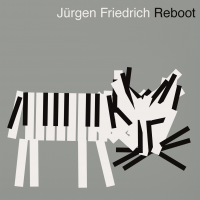



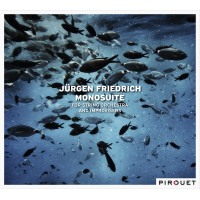
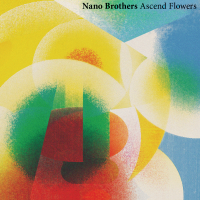
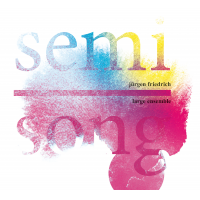


 Buy Now
Buy Now





